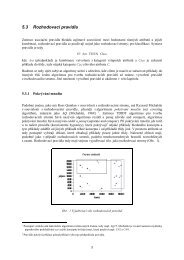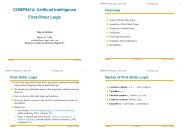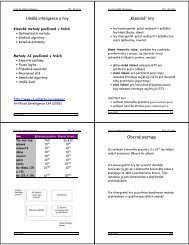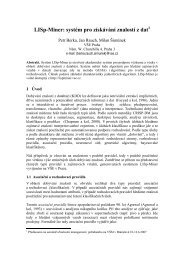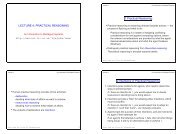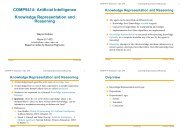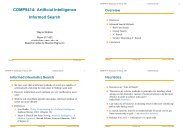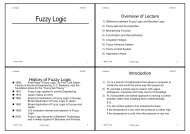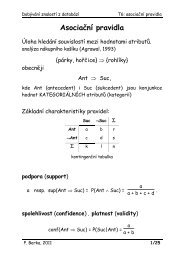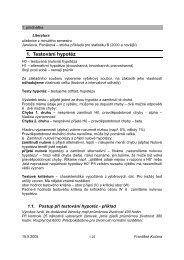Review of Probability Theory - Sorry
Review of Probability Theory - Sorry
Review of Probability Theory - Sorry
Create successful ePaper yourself
Turn your PDF publications into a flip-book with our unique Google optimized e-Paper software.
• If P( 1 ) is very much greater than P( 2 ), our decision in favour <strong>of</strong> 1 will be right<br />
most <strong>of</strong> the time.<br />
• If P( 1 ) = P( 2 ), we have only a fifty-fifty chance <strong>of</strong> being right.<br />
In general, the probability <strong>of</strong> error is the smaller <strong>of</strong> P( 1 ) and P( 2 ).<br />
In most circumstances, we have not to make decisions with so little evidence. In our example<br />
example, we can use the brightness measurement x as evidence, as Thassos marble is lighter<br />
than Carrara marble. Different samples <strong>of</strong> marble will yield different brightness readings, and<br />
it is natural to express this variability in probabilistic terms; we consider x as a continuous<br />
random variable whose distribution depends on the state <strong>of</strong> nature.<br />
Let p(x | j ) be the state-conditional probability density function for x, i.e. the probability<br />
density function for x given that the state <strong>of</strong> nature is j . Then, the difference between<br />
p(x | 1 ) and p(x | 2 ) describes the difference in brightness between Carrara and Thassos<br />
marble (see figure 16)<br />
Figure 16: Hypothetical class-conditional probability density functions.<br />
Suppose that we know both the a priori probabilities P( j ) and the conditional densities<br />
p(x | j ). Suppose further that we measure the brightness <strong>of</strong> a piece <strong>of</strong> marble and discover<br />
the value <strong>of</strong> x. How does this measurement influence our attitude concerning the true state <strong>of</strong><br />
nature? The answer to this question is provided by Bayes‘ rule:<br />
(3)



